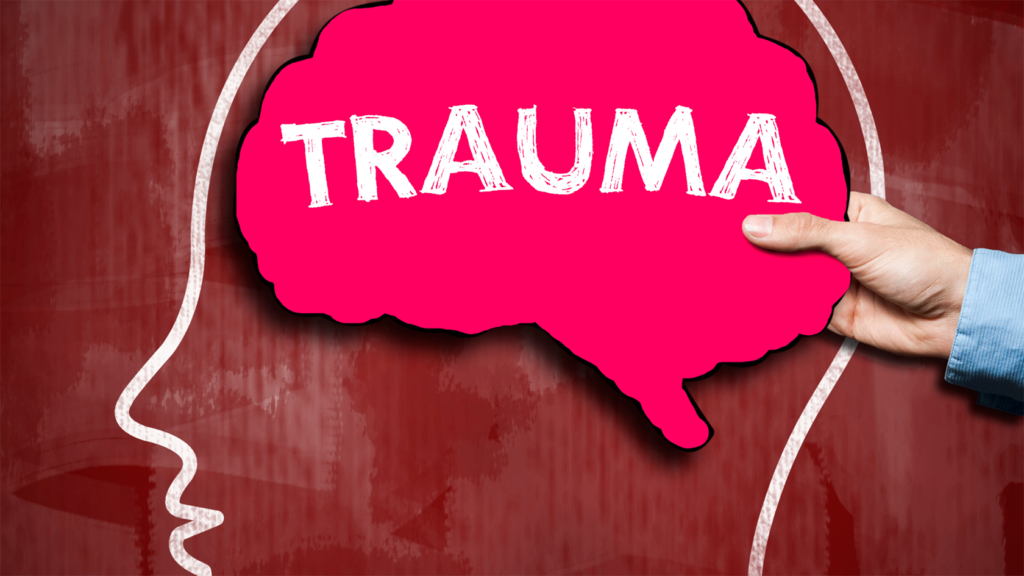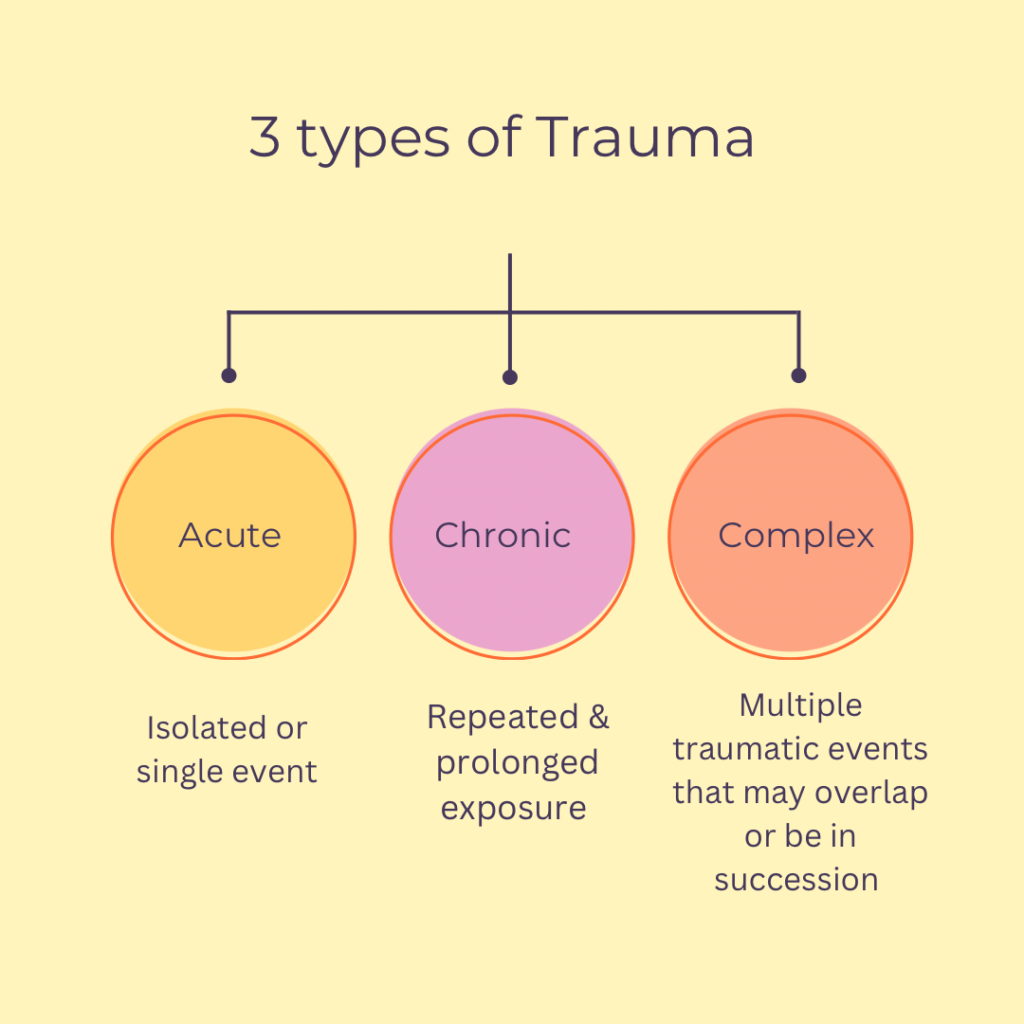For someone who has gone through a traumatic experience, coming out of it can seem impossible. But you won’t always have the horrid memory of that tragic event that plagues your heart. Slowly but surely, you will begin to make obvious progress. At the end of this article, I would have shown you some of the signs you’re healing from trauma.
Key Takeaways
- Trauma is an emotional response to a terrible event like an accident, rape, or natural disaster. It is an unexpected event or series of events that deeply affect a person physically, mentally, or emotionally.
- Some causes of trauma include natural disasters, rape, bullying, childbirth, neglect or abandonment as a child, and wars.
- Symptoms of trauma include difficulty sleeping well. headaches, numbness, you can begin to experience anxiety, and you might feel sad a lot which may result in depression.
- When you don’t experience as many symptoms as you used to, you stop isolating yourself and reach out for help, you start developing healthy relationships with people, you talk about your experience, and you feel happier and less depressed than you were before, these are signs that you are healing from the trauma.
What is Trauma?

According to the American Psychological Association, “Trauma is an emotional response to a terrible event like an accident, rape, or natural disaster.” It is an unexpected event or series of events that deeply affect a person physically, mentally, or emotionally.
Anyone can experience trauma. Whether young or adult or male or female, it is not dependent on any of that. When a person experiences a traumatic experience, it will certainly have an impact on them. Some people experience trauma as a child or teenager and it goes on to affect them for the rest of their lives.
Types of Trauma

There are different types of trauma:
Acute Trauma
Acute trauma occurs when a person experiences a single traumatic event, such as when someone is in a car accident or they lose a loved one.
Chronic Trauma
Chronic trauma occurs when a person experiences the same traumatic event repeated over a prolonged time. Some events that lead to chronic trauma are bullying, child abuse, sexual abuse, etc
Complex Trauma
Complex trauma originates from several or multiple traumatic events that affect an individual. A typical example of an event that could lead to complex trauma is parentification. When children are made to assume the role of a parent to their younger siblings, they often lack parental care themselves. And this could lead to complex trauma for such a child.
Causes of Trauma

Different events can cause trauma. Some of them include:
- Natural disasters (like earthquakes, hurricanes, floods, tornados, fires, etc)
- Sexual abuse
- Rape
- Bullying
- Psychological abuse
- Domestic violence
- Childbirth
- Neglect or abandonment as a child
- Car accidents
- A terminal illness
- The sudden loss of a loved one
- Kidnapping
- Witnessing a killing
- Terrorism
- Wars, etc.
Difference Between Trauma and PTSD
Post-traumatic Stress Disorder (PTSD) is a mental health disorder that occurs when someone experiences a traumatic experience. Sounds quite like trauma itself right? But they are not the same.
The major difference between trauma and PTSD is how long the symptoms of trauma continue. It is quite normal to feel some effects like anxiety, headache, nightmares, etc. after a traumatic experience. It might take a few weeks, but the symptoms should reduce after a while. However, if it doesn’t, the victim is beginning to tilt toward PTSD. The symptoms of PTSD last longer than that of trauma.
What Are the Symptoms of Trauma?

The effects that a traumatic experience could have on a person are no small thing. The symptoms of trauma can either be physical or psychological.
Physical Symptoms of Trauma
1. You have difficulty sleeping well.
2. You get jumpy.
3. You develop headaches.
4. You experience tiredness frequently.
5. You begin to exhibit aggressive behavior.
6. You get easily frightened.
7. You have trouble concentrating.
8. You are always on the lookout for any threat of danger.
9. Your eating pattern could change
10. You have nightmares about the traumatic event or replay it in your mind often
Psychological Symptoms of Trauma
1. You are in shock and denial
2. You begin to withdraw from others
3. You are always on edge or angry
4. You can feel numbness
5. You can begin to experience anxiety
6. You might feel sad a lot which may result in depression
7. You feel shame or guilt
8. You can get mood swings
9. You might get panic attacks when you remember the event or find yourself in a similar situation again
Signs You Are Healing from Trauma

Although the journey to your recovery from the effects of trauma may seem slow, some signs show you when you are starting to heal. Below are some of them:
1. You don’t experience as many symptoms as you used to
This is not just about ignoring the signs when they are obviously still there. If you find that you no longer experience the same reactions you used to as a result of your trauma, or that they have reduced, then that’s one of the signs that you’re healing from your trauma.
2. You stop isolating yourself and reach out for help
This is one of the signs you’re healing from trauma. Trauma victims are not prone to acknowledging the emotions surrounding the trauma they have experienced. They live in denial, avoid people, and turn down all help. But when you start interacting with people and letting them help you, then you’re healing.
3. You’re developing healthy relationships with people
As a result of the trauma you have faced, you might avoid having depths in your relationships. You might have things like vulnerability and trust because you’re still reeling from the previous hurt. But when you’re willing to start developing healthy relationships, that’s one of the signs you’re healing from trauma.
4. You are no longer in denial
This is usually the first stage that a victim of trauma experiences where they are unwilling to accept what has happened to them. You are healing when you’re no longer in denial about what has happened. When you can acknowledge your emotions rather than ignore them, then you’re healing from your trauma.
5. You’re willing to talk about your experience
The effects of a traumatic experience can make one hurt and embarrassed. Many victims are unwilling to go for therapy because it’s not something they want to address. They are unwilling to talk about it with someone else and relive the memory. You’re healing when you get to that point where you can now talk about your experience.
6. You feel happier and less depressed than you were before
One of the deepest ways a traumatic experience affects a person is that it leaves them perpetually sad which leads to depression. As you navigate through the process of your trauma recovery, you will begin to feel less depressed than you were while still dealing with the trauma. When you start to feel happier, then it’s a sign that you’re healing from trauma.
7. You’re taking three steps forward and one step back
In the process of recovering from trauma, you will experience some highs and lows. When you see that you’re making more progress and having fewer setbacks, then that’s another one of the signs you’re healing from trauma.
8. You look forward to certain activities that you avoided before
When trauma first takes place, most victims lose interest in certain activities they used to enjoy before that experience occurred. They no longer want to do things they formerly found enjoyable. But when you find yourself interested in those things again, that is also one of the signs that you’re healing from your trauma.
9. You no longer use things to numb the way you’re feeling
Trauma victims find solace in substances (like drugs, alcohol, etc) that help numb their feelings. But they only make you feel better for a while. When you’re willing to stop using those things and come to terms with how you’re feeling, then you’re getting better. It is a sign that you’re healing.
10. You no longer suppress your feelings
When you no longer try to put up a front for people that you’re okay, then you’re healing from your trauma. Many trauma victims try to act fine for their friends and family when they really are not. When you realize it’s okay to feel the way you are, you can let people in. And then you’re on your way to recovery.
11. You don’t think about the trauma as much as you used to
Of course, you might not actively know this. In most cases, it might take you a while before you even discover this. But when you realize that something that used to make you so sad is no longer troubling you as it did before, then you’re healing.
12. Your self-esteem is growing
Many times, trauma leads to a loss of self-esteem and it can take a while to repair such damages. As you heal, you will find that your self-esteem is developing. You are more confident and can relate better with people. This is a sign that you’re healing from your trauma.
How Long Does It Take to Recover from Trauma?
There is no hard and fast rule on how long it will take you to recover from trauma. Even for the same traumatic experience, the recovery process can vary from person to person. With proper care, a person can take 1-3 months to recover from trauma, depending on its type. But when it begins to take longer, it could be a sign that you are developing Post-traumatic Stress Disorder (PTSD). At that point, it is important to get professional help so you can regain a level of normalcy in your life.
Can Anyone Work Through the Effects of Trauma?
Anyone can work through the effects of trauma. With the right help from professionals and support from family members and friends, you can get better. Some people deal with trauma on their own without getting professional help and you could also do that. But if you want to be certain that your recovery is healthy and you don’t just bottle things up, it is more advisable to see a psychologist. A psychologist will be very instrumental in your process of healing from the trauma.
What Are the 5 Stages of Recovery from a Traumatic Event?

According to the Extended Transformational Model, there are 5 stages of recovery from a traumatic event and they include:
1. Pre-trauma characteristics: This refers to the stage when the trauma has just occurred. It refers to how you feel or think about the trauma that has just occurred to you.
2. Rumination: This is the second stage of trauma recovery. At this point, you begin to ponder about all that happened in the traumatic experience. You have a lot of powerful emotions and you relive the experience too.
3. Event Centrality: Event Centrality is the third stage of trauma recovery. It marks the turning point in your recovery process as you acknowledge what has happened and how it has changed your life. You also start to see what you can do to move on.
4. Control: The fourth stage of trauma recovery is when you begin to take control of your situation. You have acknowledged what has happened to you and you now know what to do to move forward. So you start to take deliberate actions in that direction.
5. Mastery: This is the point where you have learned how best to cope with the effects of your trauma. It might still affect you once in a while, but you have learned how to master it. You have learned the best coping skills to live your new post-traumatic life.
Even though all victims walk through these stages in their recovery process, the timeline may differ from person to person based on the type of trauma experienced and how deeply affected they were.
Does Trauma Always Lead to PTSD?
The level of resilience people have differs from one another. This is why some people manage the effects of trauma better than others and do not develop PTSD. In most cases also, when a person has been exposed to repeated trauma, they may have prolonged symptoms. But someone who has only experienced one tragic event might only suffer trauma and not PTSD.
What Are The Signs of Trauma in Children?
Children are quite resilient so it might be easy to miss the signs when they are experiencing a traumatic reaction. Some signs you can however look out for are changes in sleeping or eating patterns, difficulty falling asleep, unreasonable fear, a decline in academic performance, unusual shyness, clinginess to parents, etc.
What Can Be Used to Treat PTSD?
There are different treatments that can be used in dealing with PTSD. They include the use of antidepressants or anti-anxiety medications to manage depression and anxiety, cognitive behavioral therapy to recognize thinking patterns that prevent the victim from moving on, and exposure therapy to help them realize and cope with their fears and others.
What is CPTSD?
CPTSD is a complex post-traumatic stress disorder. It is a more developed form of PTSD that is a result of ongoing trauma. Its symptoms are similar to PTSD and victims may also experience feelings of disassociation from people. Most people who experienced trauma at an early age, suffered from the hands of a close relative or experienced complex trauma later go on to develop CPTSD.
Conclusion
As mentioned earlier, even for the same traumatic experiences, your reaction might vary from another’s. Your recovery process could be faster or slower and that’s absolutely fine. You don’t have to compare yourself with another person. Just ensure you get the help you need so you can heal. If you or someone around you is dealing with trauma, don’t hesitate to reach out to us for help.






